
Demanding audiences participating in the global bazaar of social media continue to pressure brands into reorienting their goals. Consumers demand a higher level of engagement that affords them a fulfilling, relevant experience anchored by the same common denominator—authenticity. From corporate giants to small businesses, marketers continue to seek ambitious social media initiatives in order to humanize their brands.
Some brands see this shift as an opportunity to get closer to their audiences, while others act like they’re caught in a digital mousetrap looking for an escape. Regardless of how these different firms respond, there’s no doubt about it: social technologies have had a dizzying effect not only on consumers but also on brands.
While some brands depend solely on Madison Avenue to dictate the rules of engagement, the smartest brands have found a new voice to humanize their image—their employees. Though these employees may appear softly spoken, there is little question whether their voices are being heard. Savvy audiences respond remarkably well to these messages, as a company’s employees represent the most authentic expression of a company’s brand. For many brands, such an approach marks a major shift in mindset.
Before a company can communicate well externally, it needs to communicate well internally. Companies that focus on honing their culture and employees via communication and education can create brands with a purpose. Brands need to start trusting the voices of their valued employees. In essence, brands need to become social.
Take, for example, this site, the AT&T Networking Exchange Blog. Bill Strawderman and Trish Nettleship spearheaded this blog in order to bring the digital voices of their employee ambassadors in the public sphere as part of the company’s effort to help foster authenticity. In an eMarketer article, Nettleship said, “The idea is to build that thought leadership and engage customers earlier in the research process, as they’re starting to learn about these technologies and how they are going to help their business.”
While it’s been over 12 years since the publication of the Cluetrain Manifesto companies are still trying to humanize their businesses. Internal communication among employees is critical for external communication to start the process. Despite the reality at most companies, these firms need to remember that people don’t think of a brand as a series of departments. Rather, they think of a brand as a whole entity.
The concept remains difficult for many brands, but companies are made up of people. Real people. Brands need to start tapping into this golden opportunity to elevate their brand relevance in a world where a person or business’s reputation can be destroyed in a mouse click. There’s liquid gold in the voices of employees, but few brands realize this unharnessed potential.
Apple’s Genius Bar is a lynchpin of the most successful retail concepts and innovative employee brand relationships of our time. Apple simply gets it: employee branding matters. According to David Aaker (@davidaaker), Vice Chairman at Prophet, in his Harvard Business Review post noted that the Genius Bar “enhances the customer relationship with its person-to-person approach.” Apple has created a “must have” new brand subcategory for retailers. Employees are on the front lines building relationships that matter. No other brand can claim “Genius Bar.”
Recently, I spoke to Vala Afshar (@ValaAfshar), Chief Customer Officer for Enterasys Networks, who is actively engaged in social media about his company’s use of enterprising social collaboration to bolster brand awareness and recognition.
Afshar said, “In the social era, customers not only have choices, but voices with unprecedented scale and amplification. Companies must actively listen, engage and deliver value via social networks. For companies to demonstrate caring and interest, in a personalized social manner, they must invest and empower every employee to comfortably champion the company ethos and brand promise.”
I asked K. C. Donovan (@UpwardlyMe), CEO at Upwardly Me, what benefits brands will realize if they amplify their employee’s voices. His reply went straight to the point. “By relying on the voice of the employee,” Donovan says, “companies can snugly wrap their brand identity around their employment values and let company voices reflect the brand’s image.”
Make no doubt about it: consumers are charged. They want more experiences. More engagement. More rewards. More power. More purpose. More reciprocity. Consumers need a reason to connect, and any brand that doesn’t tap into their socially charged minds will cease to exist.
This post was originally published on AT&T’s Networking Exchange Blog.

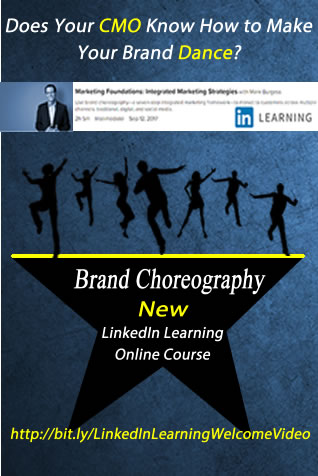
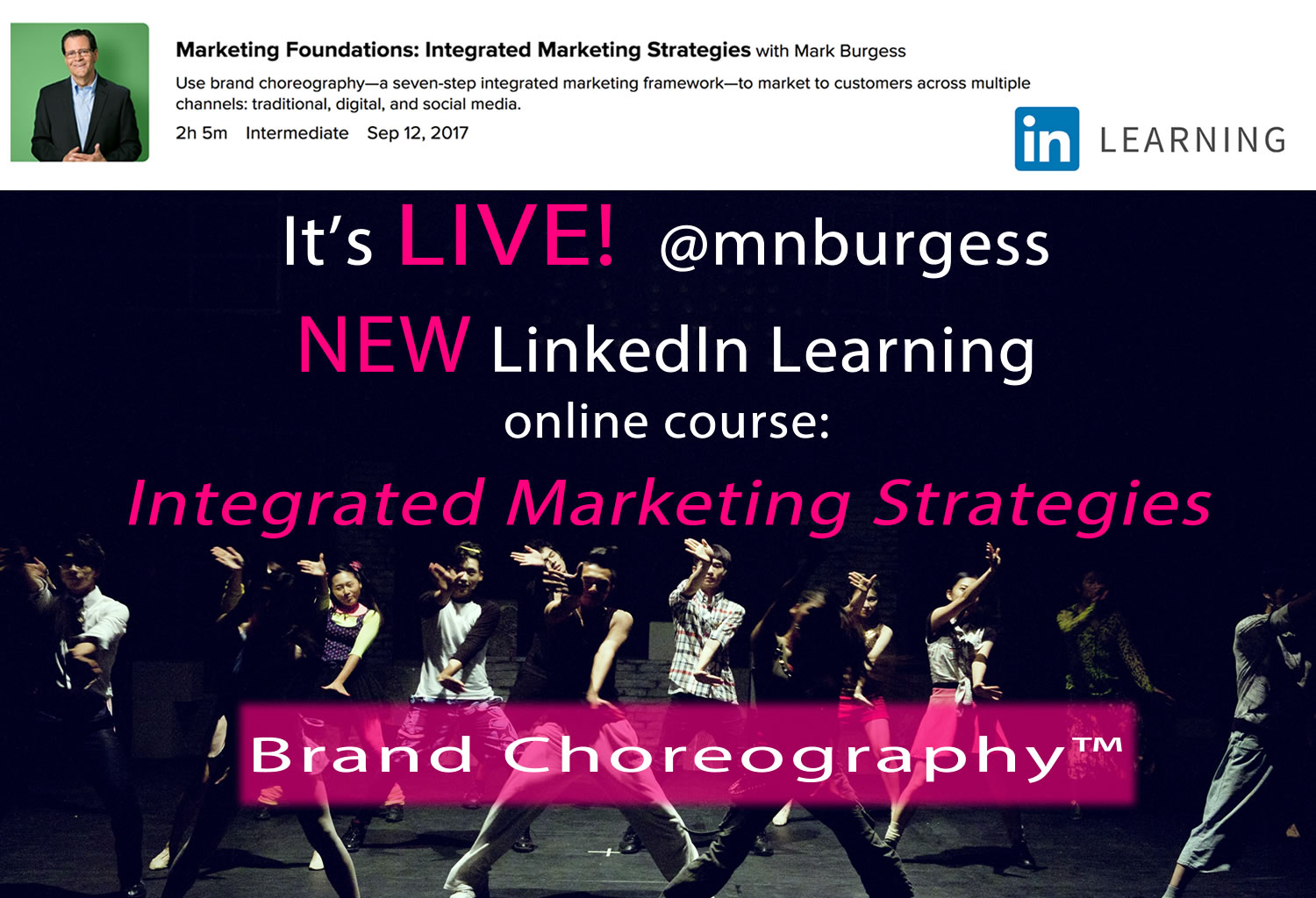


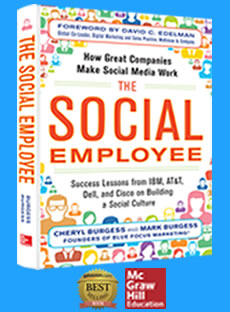

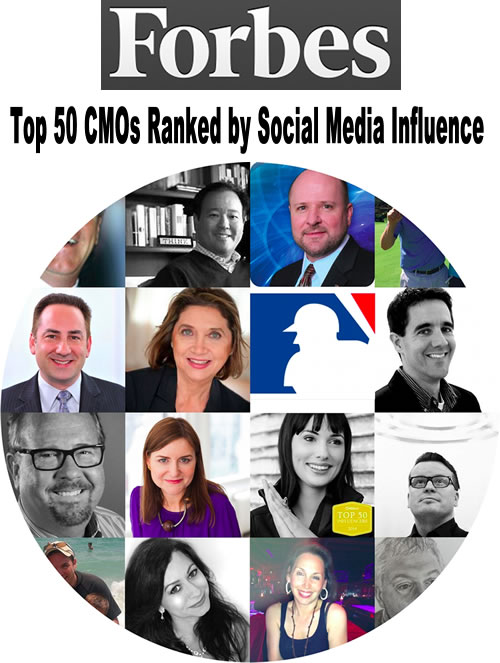
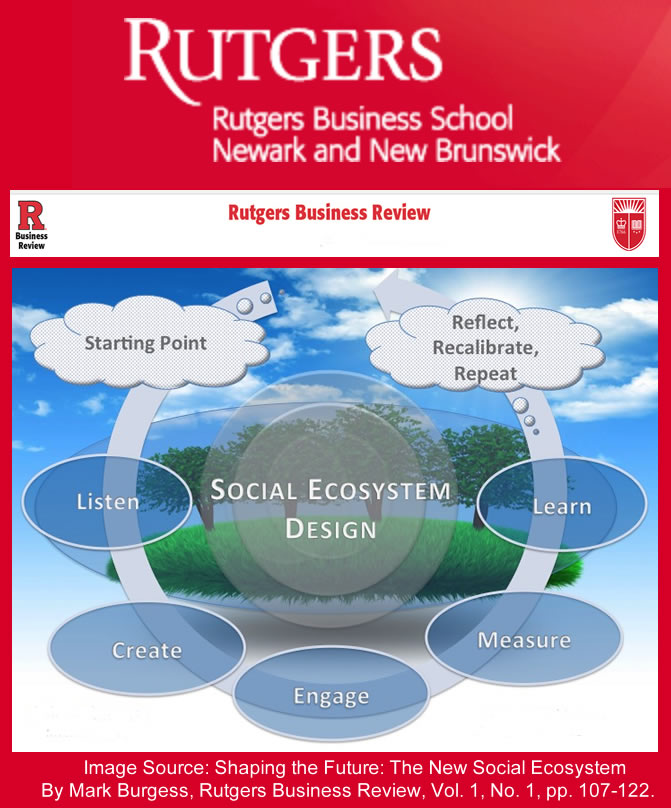
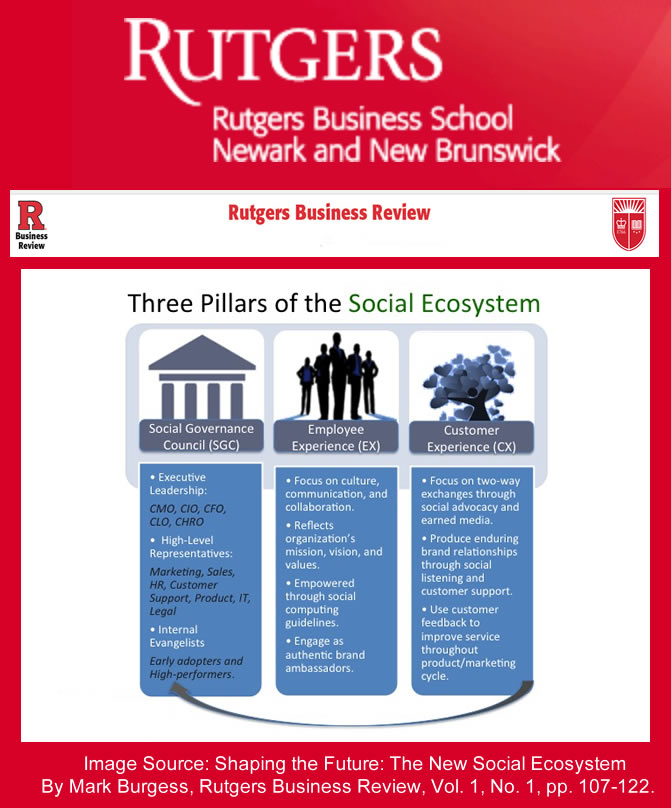

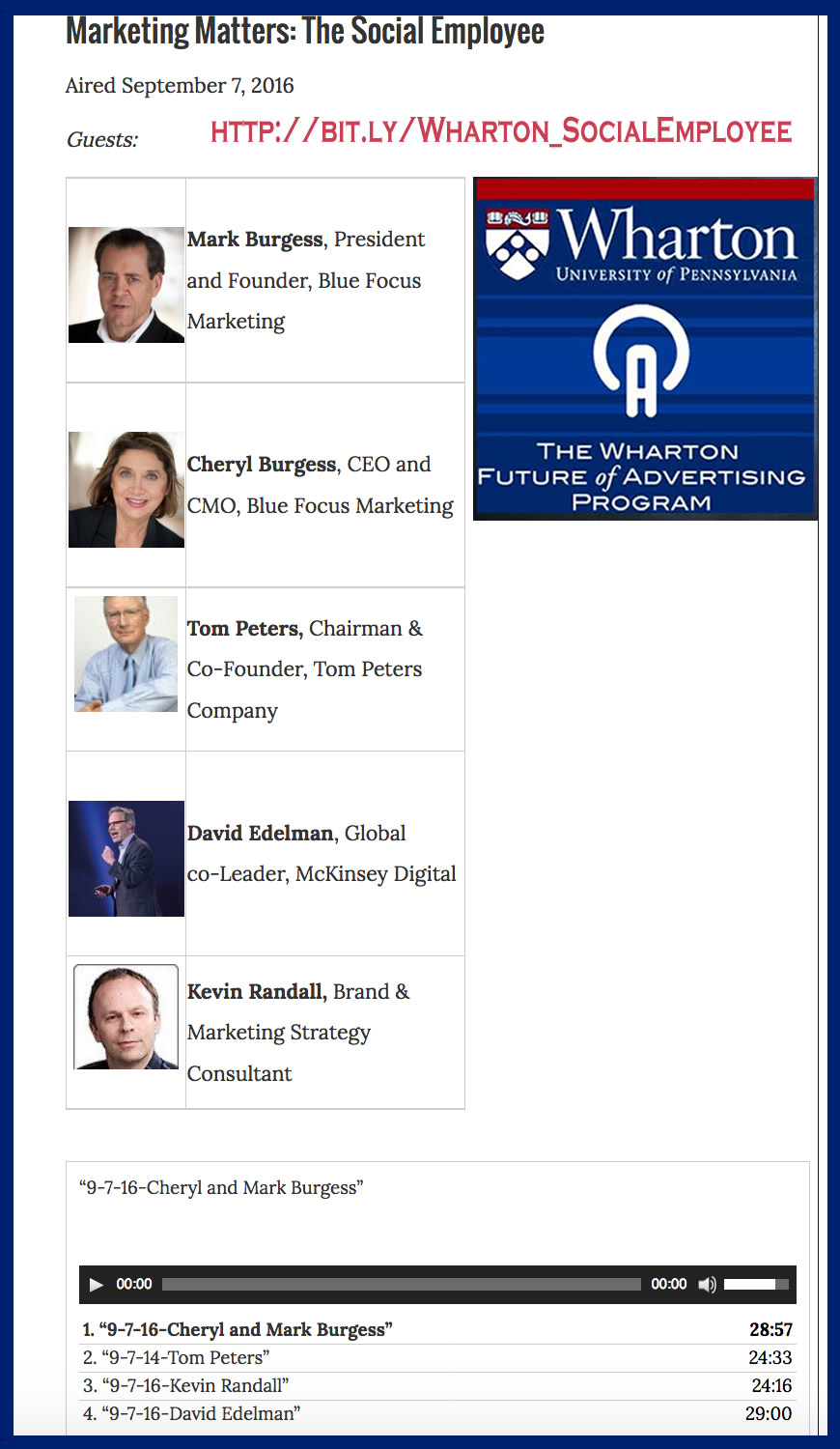


Hi Cheryl,
You touch upon an important subject. What I have found difficult to implement, or at least find buy-in, is in fact that employees become socially engaged for their company.
It is not difficult to set-up a Facebook, Google+, LinkedIn etc. But what is more difficult is to have real people that connect to these networks with their own identity, and not with some corporate account.
What would be your approach to set-up a change management program to motivate employees to become the face of the company on social media networks ?
Or is it alright to have only ‘faceless’ corporate accounts ?
Br,
Tom
Cheryl,
I’ll admit, one paragraph in I was having thoughts that this was going to be yet another hyperbolic post about the urgent need for the “humanization” of brands/organizations.
But then you shifted focus to the importance of employees as the critical brand experience medium to consumers, and how often the determining factor of whether or not a company is successful in their attempts is largely determined by culture and internal communications surrounding the company’s position towards employees as brand ambassadors (regardless of form, in-person or online). Your words ring true in my experience both as an employee as well as a consumer.
As a consumer, for all the flowery talk of companies “going social”, very very few have moved the needle personally for me, as efforts often comes across as nothing more than tactics checked off a marketing mix spreadsheet, vs. a cultural (primal?) aspect of the organization seeking my attention and dollars. But a few companies have stood apart, and they all have the same thing in common: an individual within the organization communicated with me one-on-one, either proactively or in rapid response to my internet-borne cry for help. In my mind, I did not “engage” with company X, but rather I had a human-to-human dialogue with “Mike” or “Sarah”. I have absolutely zero desire to engage with a company, but I do have an instinctive need to engage with other human beings. That makes all the difference.